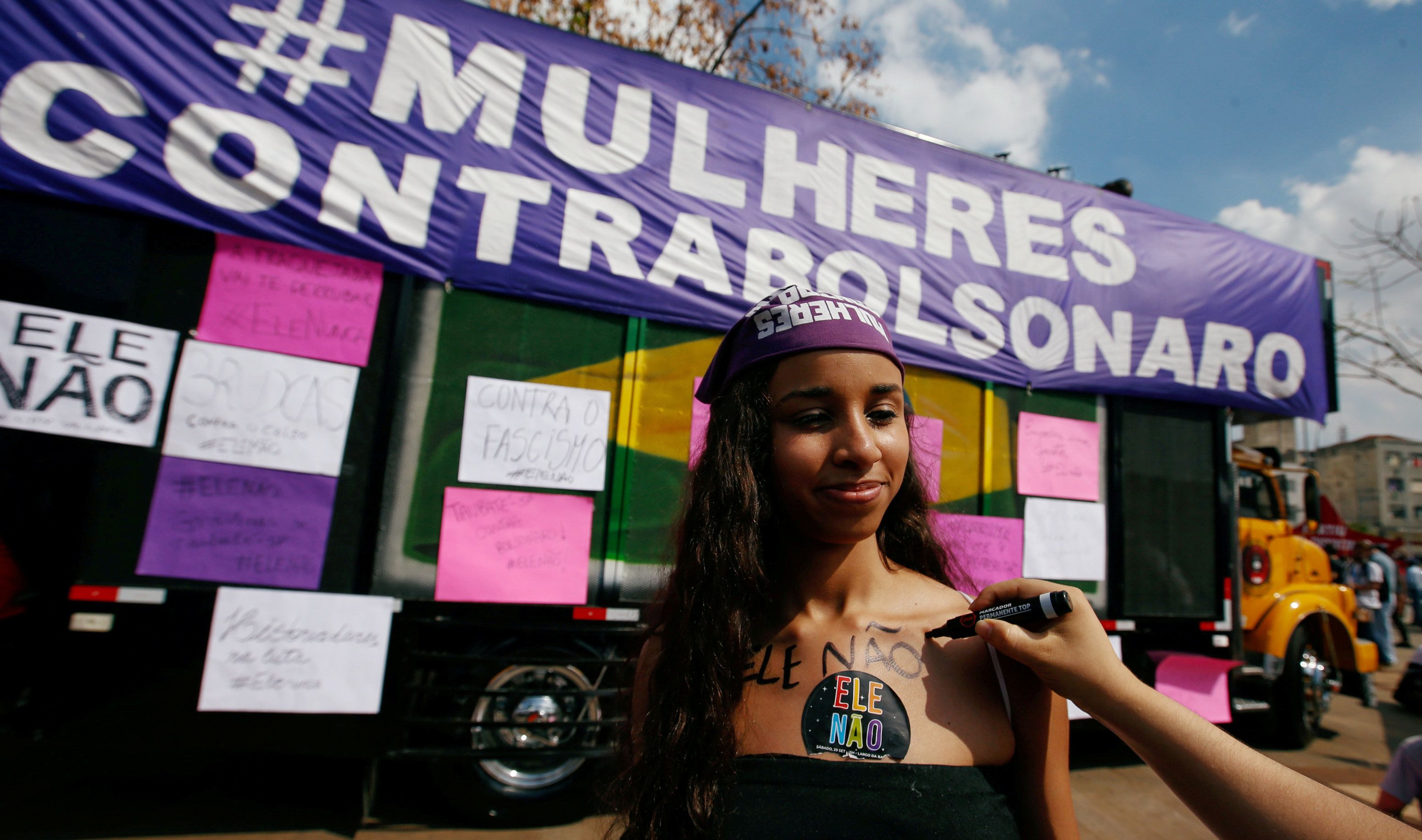A year into the #MeToo movement, gender equality issues are both prominent and polarizing in US politics. With the 2018 mid-term elections approaching, more women are running for office than ever before, and one seasoned pollster says that the gender gap between the Republican and Democratic parties could be the largest in modern American history – 58% of women support Democratic candidates against just 35% for Republicans. The supreme court confirmation hearings of Judge Brett Kavanaugh, whom psychology professor Dr. Christine Blasey Ford has accused of sexual assault, have further inflamed partisan rancor. But the US isn’t the only place in the world where women are at the center of politics these days. Here are three more:
#NotHim in Brazil. Rightwing firebrand Jair Bolsonaro’s tough talk, conservative values, and law and order approach have struck a chord among millions of Brazilians fed up with widespread corruption and surging crime. But the leading Brazilian presidential candidate’s nostalgia for military dictatorship, alongside his racially tinged and misogynistic comments – he once told a fellow congresswoman he wouldn’t rape her because she did not “deserve it” – have also alienated huge swaths of the population. Half of Brazilian women say they would never vote for Bolsonaro. There’s even a hashtag, #EleNao, Portuguese for #NotHim. Meanwhile, Women Against Bolsonaro, a Facebook group that helped organize anti-Bolsonaro protests of hundreds of thousands this past weekend, counts some 4 million members. Bolsonaro heads into the first round of the election this weekend almost assured of a runoff against left-winger Fernando Haddad. But in the most polarized and unpredictable election in Brazil’s recent history, the female vote could prove decisive in the final round.
Grieving mothers vs tear gas in Turkey. In 1995, a group of mostly Kurdish women known as the “Saturday Mothers” began weekly vigils in downtown Istanbul, demanding information about their sons, who had disappeared in official custody during clashes between the state and Kurdish separatists. Police crackdowns put the vigils largely on hold from 1999 to 2009, but since then they had gone ahead every Saturday until troops recently showed up to disperse them with tear gas, arresting dozens of now-elderly women. The government says they are a security threat associated with the insurgents of the PKK, a Kurdish party designated as a terrorist group. But activists say the crackdown reflects President Recep Tayyip Erdogan’s increasingly authoritarian bent. Mothers’ movements can certainly be politically powerful – whether it’s exposing the atrocities of Argentina’s dictatorship in the 1970s and 1980s, or helping to end (temporarily) Russia’s disastrous Chechen wars in the mid-1990s. What, precisely, is Mr Erdogan afraid of?
#MeToo goes to court in China. Last week, a high-profile #MeToo case in China headed for the courts as a famous male TV star accused of groping a female intern is now… suing that intern for defamation. The case will be a test of how Chinese authorities handle harassment cases after a summer in which the country saw several major #MeToo scandals – including one whichbrought down one of the country’s most famous up-and-coming Buddhist monks. China’s authoritarian government is wary of granting too much power to grassroots movements of this kind, particularly given that party structures are heavily male dominated. But in a country where more than 80 percent of women say they have suffered harassment, the authorities are under pressure to respond at some level. New draft laws would strengthen and clarify the vague anti-harassment laws currently on the books. Whether those laws are implemented consistently is another question entirely.
